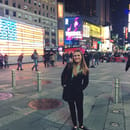Applying for jobs and internships can be hard, stressful and overwhelming. Once you find that dream position, follow these do’s and don’ts for a successful experience.
Resume
Your resume is one of the first things hiring managers look at. You want your resume to stand out among the other applicants, so don’t be afraid to be creative.
Do’s:
-
Tailor your resume to the place you are applying.
-
Use strongly-worded bullet points under each experience. Always start your bullet with an action verb and use keywords in the job description to finish the sentence.
-
Make sure your most relevant experience is easy to find because it is one of the most important things on your resume.
-
Include your contact information, such as an email and phone number.
Don’ts:
-
Typos will land your resume in the “no” pile right away. Always check for typos by having multiple people look it over.
-
Don’t list skills you no longer possess. Always update your skills section!
-
Your resume should not be longer than one page while in college. You honestly don’t have that much relevant experience yet.
-
It’s time to move on from high school —don’t list experiences you did in high school or include your high school under your education section.
Cover Letter
After your resume, employers turn their attention to your cover letter. Having a strong, well-worded cover letter is important to landing an interview.
Do’s:
-
Tell a story with your cover letter. This lets employers get a feel for your personality. Show the employers how passionate you are about the position.
-
Your cover letter should complement your resume by expanding on some of your experiences.
-
Always tailor your cover letter (like you would your resume) to the specific company you are applying to.
Don’ts:
-
You don’t want your cover letter to repeat your resume; so don’t restate everything on your resume in your cover letter.
-
Again, you can’t have any typos in your cover letter because you likely won’t be getting an interview if there are any.
Having a strong LinkedIn profile will help you network with future employers.
Do’s:
-
Your LinkedIn should be consistent with your resume. Still, it shouldn’t reiterate exactly what’s on your resume.
-
Draft a compelling summary by showing your personal style. Make sure to use keywords from the industry that you’re applying to. Be brief — recruiters look at your summary when looking for potential employees.
-
Detail your experiences in a similar fashion to the bullets on your resume. It’s okay to list student organizations under your experience.
-
Include at least five technical and soft skills to your profile.
-
Get endorsed and have references from previous employers.
Don’ts:
-
Don’t use inappropriate pictures on your profile. Future employers can see your profile even if they aren’t connected with you.
-
Don’t connect with people who have negative presence. You don’t want future employers to associate you with them.
-
In your work experience, don’t use the stereotypical buzzwords (like super-organized, task-oriented, etc.).
-
Don’t be afraid to list your accomplishments. If you were the employee of the month, put it on your profile!
Be sure to follow these do’s and don’ts when applying for your next job or internship, and you will be set for success!


